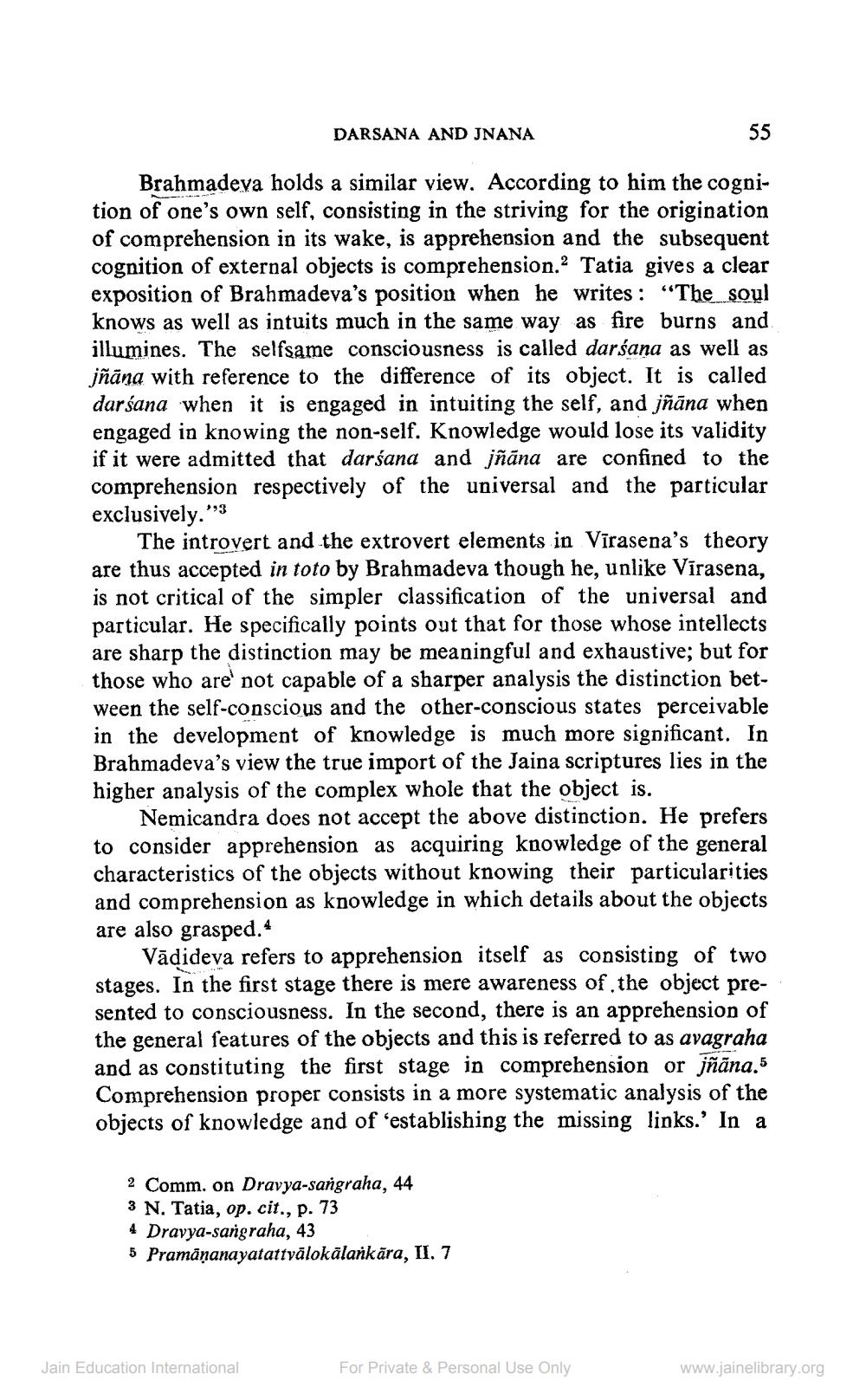________________
DARSANA AND JNANA
55
Brahmadeva holds a similar view. According to him the cognition of one's own self, consisting in the striving for the origination of comprehension in its wake, is apprehension and the subsequent cognition of external objects is comprehension.? Tatia gives a clear exposition of Brahmadeva's position when he writes: “The soul knows as well as intuits much in the same way as fire burns and illumines. The selfsame consciousness is called darśana as well as jñāna with reference to the difference of its object. It is called darśana when it is engaged in intuiting the self, and jñāna when engaged in knowing the non-self. Knowledge would lose its validity if it were admitted that darśana and jñāna are confined to the comprehension respectively of the universal and the particular exclusively.3
The introvert and the extrovert elements in Vīrasena's theory are thus accepted in toto by Brahmadeva though he, unlike Virasena, is not critical of the simpler classification of the universal and particular. He specifically points out that for those whose intellects are sharp the distinction may be meaningful and exhaustive; but for those who are not capable of a sharper analysis the distinction between the self-conscious and the other-conscious states perceivable in the development of knowledge is much more significant. In Brahmadeva's view the true import of the Jaina scriptures lies in the higher analysis of the complex whole that the object is.
Nemicandra does not accept the above distinction. He prefers to consider apprehension as acquiring knowledge of the general characteristics of the objects without knowing their particularities and comprehension as knowledge in which details about the objects are also grasped.4
Vādideva refers to apprehension itself as consisting of two stages. In the first stage there is mere awareness of the object presented to consciousness. In the second, there is an apprehension of the general features of the objects and this is referred to as avagraha and as constituting the first stage in comprehension or jñāna.5 Comprehension proper consists in a more systematic analysis of the objects of knowledge and of 'establishing the missing links.' In a
2 Comm. on Dravya-sangraha, 44 3 N. Tatia, op. cit., p. 73 4 Dravya-sangraha, 43 5 Pramāṇanayatattvālokālankāra, II. 7
Jain Education International
For Private & Personal Use Only
www.jainelibrary.org




